A gathering of members took place via Zoom on 23rd October to reflect on the return to teaching under the continuing shadow of Covid-19 restrictions. This post summarises some of the views and experiences of colleagues across institutions throughout the UK on an academic year that is far from normal!
Firstly, the opportunity to meet with friendly faces online was welcomed and there was a notable relief expressed by colleagues as they were reaching the half way point of this academic term; and some were grateful for the break offered by a pending reading week or equivalent (sadly, not available to all colleagues). There was a sense of collegiality and relief in hearing of shared experiences of the challenges presented by a new academic year. There was solace and solidarity in recognising that the current situation was anything but a ‘new normal’!
A summary of the reflections from discussion included the following:
Variance in expectations: it was notable that there is no apparent consistency to the expectations placed on academics across and between institutions. While ‘blended’ or ‘hybrid’ teaching practices have been adopted across UK institutions, this is interpreted and practiced in very different ways. Expectations of face-to-face teaching varied from one day a week per course; to 3hrs a week per course elsewhere; to 1 hour face-to-face per module; to all ‘teaching’ online supported by small group tutorials; and the recent decision by some institutions in areas of high infection rates to go entirely online.
Constant change: in addition to a variance in expectations, it is apparent that expectations placed on academic staff have been subject to change at short notice and then subject to further changes. This has created a high degree of uncertainty and pressure on staff to plan, re-plan and re-configure teaching and learning packages on an almost daily basis. Colleagues were unsure of how their teaching and tutoring commitments might change again as infection rates continue to rise.
Exhaustion: one word that was regularly repeated was ‘exhaustion’. The adaptation of all teaching material for blended learning, the demands of student support and the constant issue of amended guidance and intensive screen time required working beyond the hours available in most weeks. Members expressed concern for colleagues trying to juggle so many requirements and the impact on personal wellbeing.
Student engagement: concern was expressed that some forms of teaching and learning activities were inhibiting students from forming the communities of practice that are synonymous with high quality youth and community work education; conversely, colleagues shared stories of how some forums, methods and tools had been received well by students and that engagement had been sustained despite (and in some case enhanced by) the circumstances. What was clear, is that colleagues had continued to persist with students interests as the foci of their efforts to work within University expectations.
Professional Practice: the flexibility afforded by current guidance in relation to professional practice requirements across the 4 nations was highlighted and discussed. The extension of allowances for the full 2020-21 academic year (with respect to no detriment) across all student cohorts was welcomed and acknowledged. Colleagues were working within this guidance and using professional judgement to inform decisions in line with regulations. There was acknowledgement that any further restrictions in access to practice settings, supervision and youth engagement may require further revision of guidance. A meeting of the sub-group of English ETS will revisit the guidance in December 2020.
Evaluating the student experience: it was suggested that a cross-institutional evaluation of student experience on youth and community work courses , and their responses, during Covid-19 may be a valuable exercise. Colleagues were keen to ensure that the student voice was captured at an appropriate point in the cycle of this academic year. It was agreed to explore methods and partners that may wish to participate in this exercise.
Despite the exhaustion and obvious challenges, colleagues were positive about engaging with one another during the year ahead. It was highlighted that the Association were keen to provide positive and purposeful opportunities for colleagues to continue engaging. This will be explored further in our next Members Connect session on Friday 13th November under the theme of ‘Creative Collaborations’.

